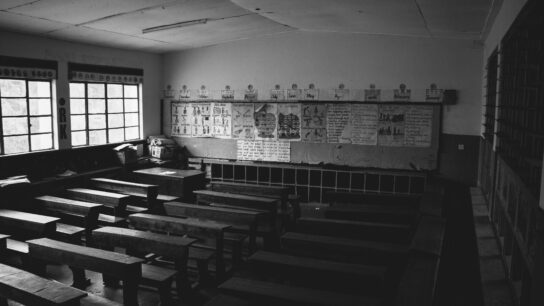This Idea is Nothing New
February 7, 2017 marked an important milestone in United States history, the Vice President of the United States was required to cast a tie breaking vote in the Senate in the matter of the confirmation of the new Secretary of Education. The United States Senate voted fifty for and fifty against the confirmation of Betsy DeVos as Secretary of Education a position that arguably, by all accounts, should require at least some knowledge of and or experience in the field of Public Education. Regardless of any of these expected qualifications, a billionaire investor was confirmed and sworn in as the new Secretary of Education. Unlike billionaires Bill Gates and Mark Zuckerberg and others whose philanthropy is often geared toward the improvement of public schools, particularly in the urban districts where schools generally struggle the most, Betsy DeVos’s philanthropic advocacy was aimed toward school vouchers. So it is now more important than ever to understand what school vouchers really are and what they could mean for the future of Public Education.
As a former public school educator and a practicing Catholic, I often find myself conflicted on many of the social issues of today. Not the least of those issues is the matter of school vouchers or as we Catholics like to call them, “scholarships”. Now, as in the past, I will continue to advocate for what I believe is best for our children as well for we parents and grandparents. In my last article I promised that as we discuss the new administration’s policies on education, it would not become a negative commentary rather, an honest look at what could be in store for public education as the administration rolls out its ideas and direction.
Contrary to popular belief, school vouchers are not something new, in fact, the concept has been around for decades. Unfortunately, this became another example of an extremely well intended program stretched to its unrecognizable limits. The program was developed as far back as 1869 in the rural New England States, where some towns did not operate elementary and or high schools within their boundaries. Students in these towns were able to receive vouchers to attend a public or non-religious private school in a neighboring receiving school. This certainly made sense at the time and is still practiced in many cities and towns throughout the country.
The modern concept of education vouchers began to be touted in the 1950s, as a way to spur competition between and among schools as a means to improve schools and cost efficiency. This continues to be the most commonly used argument in favor of the voucher system. However, it took a mere ten years to find a darker use for the voucher. During the 1960’s many of the Southern States found a way of using school vouchers to advance school segregation. Public schools were simply closed and in their place sprung up (private) segregated schools so eloquently named segregation academies. Now, based on the fact that 95% of private schools are religious schools, is there even the slightest concern that perhaps a new and more dangerous type of segregation is rising? Who’s to say? There are enough other reasons for a debate on the issue of education vouchers to keep all of us busy for a while. However, I would caution that the time for such debate should be now sooner than later.
While discussion regarding the education voucher issue needs to continue, there are other aspects to the overall movement that need to be drawn into our conversation. Of course, the largest of these is the concept of “school choice’. The new administration’s policies on education largely revolve around the broad term of “School Choice”. Our next discussion will begin to tackle this often misused term. Maybe we will be able to break the issues down into smaller chunks in an effort to understand the real issues with education privatization.






